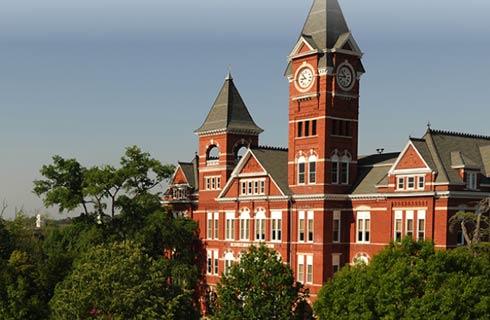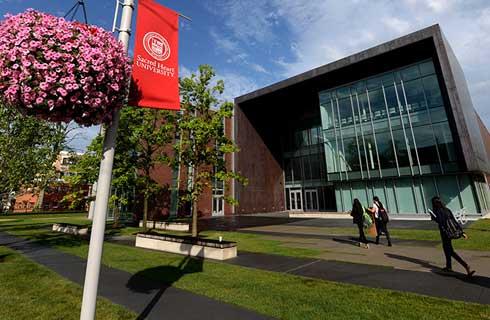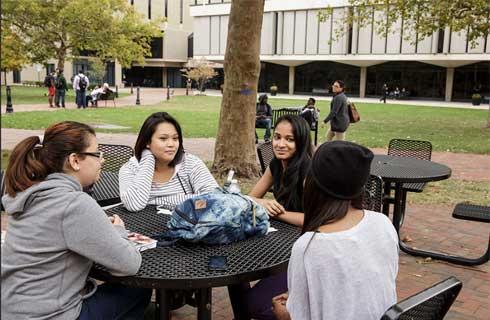生物医学科学学士/法学学士(荣誉学位)
Bachelor of Biomedical Science/Bachelor of Laws (Honours)

学历文凭
Dual Degree

专业院系
Faculty of Health

开学时间

课程时长

课程学费

国际学生入学条件
Students must have a pass in Australian Year 12 or equivalent.
Entry requirements may vary from country to country.
IELTS Academic score of 6.5 with Listening, Reading, Writing and Speaking score of 6; TOEFL iBT score of 79 with Listening, reading score of 16, Writing score of 21 and Speaking score of 18; Pearson PTE (Academic) score of 58 with Listening, Reading, Writing and Speaking score of 50; Cambridge English Advanced (CAE) score of 176 with Listening, Reading, Writing and Speaking score of 169.
IDP—雅思考试联合主办方

雅思考试总分
- 雅思总分:
- 托福网考总分:
- 托福笔试总分:
- 其他语言考试:
CRICOS代码: 085232C
申请截止日期: 请与IDP联系 以获取详细信息。
课程简介
A double degree in biomedical science and laws provides you with knowledge to work as part of a multidisciplinary team in biomedical research, development and commercialisation.During this degree, you will complete core biomedical science units that develop knowledge and skills in foundational biomedical science disciplines. Comprehensive core studies in law will assist you in developing the capabilities necessary to be a successful learner and legal professional. You will not only gain knowledge of the law but also skills such as research, communication and dispute resolution.This degree offers you the flexibility to choose one major study area or two minor study areas in biomedical science. These may include anatomical sciences, human biochemistry, human physiology, infection and immunity, or cell and molecular biotechnology. In the law component, you will complete introductory, general and advanced electives that may include internet law, succession law, taxation law or health law. You will also complete four elective units which can include law units or can be from another minor in the university, such as a language.
相关申请
 预科
预科 奖学金
奖学金 实习机会
实习机会 在校学习
在校学习 跨境学习
跨境学习 校园授课-线上开始
校园授课-线上开始 在线/远程学习
在线/远程学习
开学时间&学费
学费信息仅供参考,请与IDP联系以获取详细信息
| 开学时间 | 时长 | 学费 | 地点 |
|---|
学校排名

世界排名179
数据源:
泰晤士高等教育世界大学排名
关于昆士兰科技大学

昆士兰科技大学(QUT)是一所年轻的、具有全球视野的大学。学校拥有超过50000名学生,其中包括来自140多个国家的国际学生。QUT充满雄心,愿意迎接新的挑战,致力于通过实践性学习将学生与现实世界联系起来,为未来的职业生涯做好准备。学校的课程旨在让学生毕业后具备在澳大利亚及海外找到工作所需的技能。学生可以从100多个现实世界的课程中选择,将他们的热情转化为有意义的职业。QUT提供建筑与建筑环境、商业、传播、创意艺术、设计、工程、英语语言与衔接课程、健康、信息技术与游戏、司法、法律、数学与数据科学、科学、教学与教育等领域的课程。QUT致力于为学生和行业雇主创造联系机会,通过综合实习、实习和现实世界的合作项目实现这一目标。学校的教职员工在行业中担任重要咨询职位,并参与行业项目,通常会让学生参与其中。QUT在昆士兰州排名第一,全球排名111-120位,毕业生就业能力突出(2022年QS毕业生就业能力排名)。QUT的研究活动旨在应对全球面临的重大问题。学校的跨学科研究方法不仅使其更贴近现代世界,还为学生提供了一个变革性的学习环境,使他们能够磨练研究技能,探索更广泛的工作环境,并与行业合作产生现实世界的影响。TEQSA PRV12079
本校相关课程

商业(国际商业)研究生证书
学历文凭
Graduate Certificate
开学日期
课程费用总额


商业(市场营销)研究生证书
学历文凭
Graduate Certificate
开学日期
课程费用总额


商业研究生证书(应用金融)
学历文凭
Graduate Certificate
开学日期
课程费用总额


商业研究生证书(跨学科)
学历文凭
Graduate Certificate
开学日期
课程费用总额


商业研究生证书(人力资源管理)
学历文凭
Graduate Certificate
开学日期
课程费用总额


商科学士/创意产业学士
学历文凭
Dual Degree
开学日期
课程费用总额

其他相关课程

生物医学学士
 皇家墨尔本理工大学
皇家墨尔本理工大学学历文凭
Bachelor Degree
开学日期
课程费用总额


哲学硕士-生物医学和生物化学
 澳大利亚国立大学
澳大利亚国立大学学历文凭
Masters Degree (Research)
开学日期
课程费用总额


生物医学学士
 詹姆斯·库克大学
詹姆斯·库克大学泰晤士高等教育世界大学排名:361
学历文凭
Bachelor Degree
开学日期
课程费用总额


理学学士(海洋生物学)
 弗林德斯大学
弗林德斯大学泰晤士高等教育世界大学排名:307
学历文凭
Bachelor Degree
开学日期
课程费用总额


理学学士-海洋生物学(荣誉学位)
 弗林德斯大学
弗林德斯大学泰晤士高等教育世界大学排名:307
学历文凭
Bachelor Degree with Honours
开学日期
课程费用总额


城市与环境规划学士/海洋生物学理学学士
 格里菲斯大学
格里菲斯大学泰晤士高等教育世界大学排名:258
学历文凭
Dual Degree
开学日期
02 March 2026
课程费用总额
AUD 167,500










